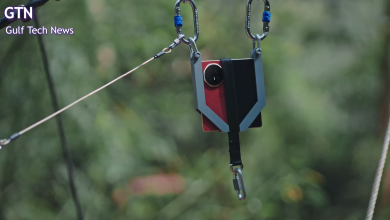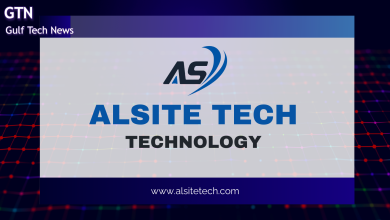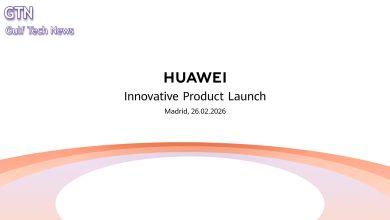Digitalization in the Middle East & Africa – Shaping a Collaborative Future in 2025 and beyond!

By: Patrick Johansson, President of Ericsson Middle East and Africa
Imagine a farmer boosting crop yields using 5G-enabled weather insights, a student in rural villages accessing global education through digital platforms, or a logistics firm slashing delivery times with IoT-powered solutions.
These are not visions—they are realities powered by Ericsson’s cutting-edge technology and long-standing partnerships with our customers the communication service providers across the Middle East and Africa (MEA). As we approach 2025, the MEA region is not just embracing the digital revolution but actively leading its evolution.
With 310 million 5G connections expected by 2029 and over 1.2 billion mobile subscriptions, MEA is poised for transformative growth. At Ericsson, we are proud to be at the forefront, empowering communities, supporting telecom operators, and driving enterprise innovation to create a connected, inclusive, and sustainable future. In a rapidly digitalizing world, enterprises across MEA are leveraging Ericsson’s technologies to innovate and thrive.
As a few examples, in Saudi Arabia, Ericsson’s partnerships are building the next generation of networks, supporting digital transformation initiatives in line with Saudi Arabia’s Vision 2030 aspirations. In 2024, we partnered with leading telecom operators in the multiple countries in the region to implement 5G Advanced time-critical communication solutions, enhancing user experience and driving the adoption of next-generation applications like cloud gaming and extended reality.
Our technology is powering logistics solutions and reducing delivery times by 30%, while private 5G networks are enabling manufacturers to automate operations and adopt Industry 4.0 practices. Ericsson’s Private 5G networks in South Africa are driving efficiency and safety in the mining sector by automating operations and enabling remote monitoring.
These innovations are helping enterprises across the region unlock efficiency, enhance customer experiences, and contribute to national economic growth.
Ericsson’s technologies are enabling telecom operators to lead in connectivity, unlock new revenue streams, and deliver superior services. In the GCC Countries and by 2030, 93% of mobile subscriptions in GCC nations are expected to be 5G. Ericsson’s dual-band radios and AI-driven network solutions are helping operators deliver faster speeds, seamless coverage, and lower latency.
Last year, Ericsson have modernized core networks in Egypt, enabling operators to launch the country’s first 5G standalone services and introducing innovative consumer and enterprise applications. While in Nigeria, the AI-driven analytics have reduced network outages by 25%, improving service reliability and customer satisfaction for millions.
By partnering with telecom operators around efficient, scalable, and sustainable solutions, Ericsson’s technology secure sustainable success in a competitive market while meeting the rising demand for advanced connectivity.
Ericsson’s impact is evident across MEA. As one example, in Qatar, Ericsson-powered 5G stadiums have redefined fan experiences, showcasing immersive entertainment and operational efficiency during global sports events. While in Kenya, our Fixed Wireless Access solutions have brought high-speed internet to remote villages, enabling education, telemedicine, and small business growth.
By tailoring solutions to local needs, Ericsson is fostering innovation, inclusivity, and sustainable development across the region.
5G, AI and the Cloud are the building blocks of MEA’s digital future, and Ericsson is leading the charge in their deployment. In Nigeria, our AI-powered network optimization ensures reliable connectivity, enhancing user experiences and enabling businesses to operate seamlessly.
Technology is not only enabling a prosperous future but a sustainable one as well. Sustainability is at the heart of Ericsson’s innovations, helping reduce environmental impact while expanding connectivity. In Morocco, Ericsson’s initiatives in smart city infrastructure and telecom sustainability, as part of their vision for 5G and smart cities in the Middle East and Africa.
And in the GCC Region, Ericsson’s energy-efficient 5G networks are reducing power consumption by up to 30%, supporting national climate goals.
But what would it mean for every enterprise in MEA to harness the full potential of connectivity? How can advanced and emerging nations collaborate to ensure digital inclusion for all?
The answers lie in collective action. By 2030, mobile broadband will account for 70% of subscriptions, and 5G will revolutionize sectors such as education, healthcare, and finance. Ericsson is committed to being a driving force behind this transformation.
At Ericsson, we see technology as a bridge to opportunity, inclusion, and progress. Together with our customers and industry partners, we are shaping a future where connectivity empowers nations, uplifts communities, and drives sustainable development.
Through groundbreaking innovations, impactful partnerships, and a commitment to sustainability, Ericsson is unlocking the potential of the Middle East and Africa, to lead in a connected world.





